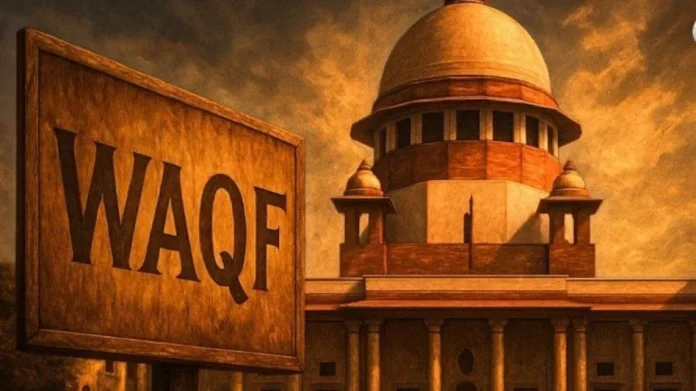New Delhi: A Hindu organization based in Kerala, the Sri Narayana Manava Dharma Trust, has approached the Supreme Court to challenge the Waqf (Amendment) Act 2025, arguing that the law poses a threat to the very existence of the Muslim community in India.
According to legal news platform Bar & Bench, the Trust was established in 2023 to promote the values and teachings of the philosopher and social reformer Sri Narayana Guru. It has now filed an intervention application in the ongoing petitions challenging the amended Waqf Act.
“In keeping with Sri Narayana Guru’s teachings about the interdependence of all communities, the Sri Narayana Manava Dharma Trust cannot remain a silent spectator to the devastating impact of an illegal act on the Muslim community in India. This is a matter of social justice,” the Trust stated.
The Supreme Court bench comprising Chief Justice Sanjiv Khanna, Justice P. S. Sanjay Kumar, and Justice K. V. Viswanathan is scheduled to hear the case at 2 PM today. The court has barred any further fresh petitions on the matter, allowing only intervention applications to support existing pleas.
In its plea, the Trust asserted that the amended law effectively abolishes the institution of Waqf in India. It claims the Act wrongly portrays the Waqf system as a secular, non-religious institution, thereby erasing Islamic jurisprudence which governs Waqf, and replacing it with a secular law framework.
The plea further contends that the new law imposes an “unconstitutional sui generis scheme” designed and enforced by the state to control Muslim charitable endowments across the country. This, the Trust argues, deprives the Muslim community of the economic and financial resources needed to practice their religion.
“The impugned Act endangers the very survival of the Muslim community in India by eliminating the financial and institutional foundation built over centuries through the Waqf system,” the petition stated. The petition was filed by Advocate Vaibhav Chaudhary and drafted by Advocate Dr. G. Mohan Gopal.




